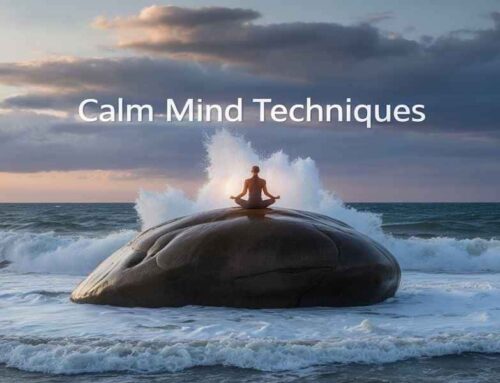
Chasing Happy? What is true happiness?
You’ve probably asked yourself that question a thousand times. We all have. We’re constantly bombarded with images and narratives of what happiness “Should” look like. Perfect families, dream vacations, glittering careers, endless possessions.
It’s a carefully curated highlight reel, often far removed from the messy, vibrant reality of life. Does it make you feel like you’re forever chasing something just out of reach? Do you feel a quiet rebellion brewing inside you, a sense that there’s more to authentic joy than what the world tells you?
This isn’t your typical self-help manual filled with platitudes and empty promises. This is for the rebels, the dreamers, the ones who sense that genuine contentment lies not in conforming, but in courageously charting their own course.
It’s a guide to finding your own unique path to joy, even if it means dismantling some long-held beliefs along the way.
The Illusion of the Happiness Checklist
Remember those checkboxes society loves to hand out? Get good grades, land a stable job, buy a house, get married, have 2-3 kids, retire comfortably. For generations, these were the markers of a “Successful” and by extension, “Happy” life.
But how many people do you know who ticked every box and still felt an undeniable ache for something more? A hollowness where true happiness was supposed to reside?
The problem isn’t the goals themselves; it’s the assumption that achieving them automatically unlocks a perpetual state of bliss. It’s the belief that happiness is a destination you arrive at, rather than a journey you continuously navigate.
We’re taught to chase external validation, to compare our lives to others and to postpone our joy until some mythical future moment. “I’ll be happy when…” How often do those words escape your lips? When the promotion comes? When you lose those ten pounds? When you finally take that dream trip?
This postponement is a trap. It robs us of the present moment, the only place where genuine connection and authentic joy can actually flourish.
Think about it. We’re often told that happiness is a consequence of external circumstances. Winning the lottery. Getting a promotion. Finding “The One.” While these events can certainly bring fleeting moments of pleasure, are they the bedrock of lasting fulfillment?
Research suggests otherwise. The initial high of a major life event often dissipates and we return to a baseline level of contentment. This phenomenon, known as hedonic adaptation, is a powerful reminder that our brains are incredibly adept at normalizing new circumstances, both good and bad.
So, if even winning millions doesn doesn’t guarantee perpetual bliss, what does that tell us about our relentless pursuit of external markers? It tells us that the real work of chasing happy happens on the inside.
Dismantling the Myth of Constant Euphoria
Let’s be clear: true happiness isn’t a constant state of grinning ecstasy. Life is messy. It’s full of ups and downs, triumphs and disappointments, sunshine and storms. Expecting to feel perpetually euphoric is not only unrealistic; it’s a recipe for profound dissatisfaction.
This societal pressure to always be “On” and “Happy” can actually lead to increased anxiety and feelings of inadequacy when we inevitably experience negative emotions.
A rebel understands this. A rebel embraces the full spectrum of human emotion. Sadness, anger, frustration, fear – these aren’t roadblocks to happiness; they’re integral parts of the human experience. Trying to suppress them only makes them fester.
Instead, we learn to acknowledge them, to understand their messages and to move through them with grace and resilience. As the poet Rumi famously said, “The wound is the place where the light enters you.”
Embrace the difficult emotions, for they often hold valuable lessons and pave the way for deeper understanding and, ultimately, more profound authentic joy.
Consider the concept of emotional intelligence. It’s not about eradicating negative feelings, but rather understanding them and managing them constructively. It’s about recognizing that a bad mood doesn’t make you a bad person and a moment of sadness doesn’t negate all the good in your life.
This nuanced perspective is crucial for cultivating a sustainable and realistic sense of well-being. It’s about building emotional muscle, not avoiding the gym entirely.
The Rebel’s Manifesto: Core Principles for Authentic Joy
So, how does a rebel chase happy? It’s not about following a rigid set of rules, but rather adopting a mindset, a way of being that prioritizes genuine connection, self-discovery and intentional living.
Principle 1. Reclaim Your Definition of Success
Who dictates what success means to you? Is it your parents, your peers, the media? It’s time to shred that script. Your version of a successful life might look radically different from anyone else’s and that’s not just okay – it’s essential.
For some, success might be building a thriving business. For others, it might be raising compassionate children, mastering a craft or simply living a quiet life aligned with their values. What truly resonates with your soul? What makes your spirit sing?
Define success on your own terms. This internal compass is far more reliable than any external metric.
This radical redefinition is the first step towards unlocking true happiness. When you’re no longer striving for someone else’s ideal, you free up immense energy to pursue what truly matters to you.
It’s about shedding the weight of external expectations and stepping into your own power. This isn’t selfish; it’s self-preservation and self-actualization.
Principle 2. Embrace Imperfection: The Beauty of the Unfinished
Perfectionism is the enemy of authentic joy. It’s a relentless taskmaster that demands flawlessness, leaving no room for growth, experimentation or the beautiful messiness of life.
A rebel understands that growth happens in the struggle, not just in the triumph. Mistakes aren’t failures; they’re invaluable data points, opportunities to learn and refine.
Think of an artist. Do they discard a painting simply because a brushstroke isn’t “Perfect”? Or do they embrace it, adjust and allow the imperfection to contribute to the unique character of the piece?
Life is your canvas. Don’t be afraid to make bold strokes, even if they’re not always precisely as you intended. This willingness to be imperfect fosters resilience and a deep sense of self-acceptance. It’s about being perfectly imperfect.
“There is a crack in everything. That’s how the light gets in.” – Leonard Cohen. This poignant quote encapsulates the rebel’s approach to imperfection. It’s in our perceived flaws and vulnerabilities that our true strength and beauty often lie.
Principle 3. Cultivate Deep Connections: Beyond the Superficial
In a world obsessed with fleeting social media interactions, true happiness often blossoms in the fertile ground of deep, meaningful relationships. A rebel prioritizes quality over quantity.
They invest time and energy in nurturing connections that nourish their soul, uplift their spirit and provide a sense of belonging. This means choosing authenticity over popularity, vulnerability over pretense.
Are you surrounding yourself with people who celebrate your wins and support you through your challenges? Do you feel truly seen and heard in your relationships?
If not, it might be time to prune some superficial ties and cultivate those that genuinely resonate. This takes courage, but the rewards – a sense of profound connection and authentic joy – are immeasurable.
Studies consistently show a strong correlation between strong social connections and overall well-being. Loneliness, on the other hand, can be as detrimental to health as smoking. So, nurturing your relationships isn’t just about feeling good; it’s about living a healthier, more fulfilling life.
Principle 4. Practice Intentional Living: Design Your Days
How often do you feel like you’re simply reacting to life, rather than actively creating it? Intentional living is about reclaiming your agency. It’s about consciously choosing how you spend your time, energy and attention, aligning your daily actions with your core values and aspirations.
This doesn’t mean every moment has to be perfectly planned, but it does mean being mindful of your choices.
What truly brings you joy? Is it spending time in nature, pursuing a creative hobby, learning something new or contributing to a cause you care about?
Make space for these activities in your life. Say “No” to commitments that drain your energy and “Yes” to those that ignite your spirit. This proactive approach is a cornerstone of authentic joy.
“The two most important days in your life are the day you are born and the day you find out why.” – Mark Twain. Intentional living helps us answer that “Why.” It’s about living with purpose, even in the smallest of daily choices.
Principle 5. Embrace Discomfort: Where Growth Lives
Growth rarely happens in your comfort zone. A rebel understands that true transformation often requires stepping into the unknown, facing fears and embracing challenges. This doesn’t mean seeking out unnecessary hardship, but rather recognizing that discomfort is often a signal of growth.
Learning a new skill, starting a difficult conversation, pursuing a challenging goal – these moments of discomfort can lead to profound insights and a deeper sense of accomplishment.
Think about a caterpillar transforming into a butterfly. The chrysalis phase is undoubtedly uncomfortable, a period of immense internal change. But without it, the butterfly would never emerge.
Similarly, embracing discomfort allows you to shed old patterns, develop new strengths and ultimately soar to new heights of true happiness.
This concept is closely tied to resilience, the ability to bounce back from adversity. When you willingly step into discomfort, you build your resilience muscle, making you more adaptable and capable of navigating life’s inevitable challenges with grace.
Principle 6. Cultivate Gratitude: The Antidote to Scarcity
In a world that constantly tells us we need more, gratitude is a powerful act of rebellion. It’s about shifting your focus from what’s missing to what’s abundant in your life. It’s about appreciating the small moments of beauty, the everyday blessings that often go unnoticed.
A simple cup of coffee, a warm blanket, a sunny day, the laughter of a loved one – these are the threads that weave the tapestry of a joyful life.
Practicing gratitude isn’t about ignoring hardship; it’s about acknowledging the good even amidst challenges. It’s a profound shift in perspective that can profoundly impact your overall well-being and open your heart to more authentic joy.
Keep a gratitude journal, share what you’re grateful for with others or simply take a moment each day to pause and appreciate.
“Gratitude turns what we have into enough and more. It turns denial into acceptance, chaos into order, confusion into clarity… it makes sense of our past, brings peace for today and creates a vision for tomorrow.” – Melody Beattie.
Principle 7. Find Your Flow: The Zone of Effortless Joy
Have you ever been so engrossed in an activity that time seemed to disappear? That’s the state of flow, a psychological concept described by Mihaly Csikszentmihalyi. It’s a state of complete absorption, involvement and enjoyment in the process of an activity.
When you’re in flow, you’re operating at your peak, your skills are perfectly matched to the challenge and you experience a profound sense of satisfaction.
A rebel actively seeks out activities that induce flow. This could be anything from painting and playing music to coding, gardening or even engaging in deep conversation.
Identify what truly captivates your attention and brings you into this state of effortless engagement. Prioritize these activities, for they are powerful pathways to authentic joy.
This isn’t about being busy; it’s about being deeply engaged. It’s about finding activities that challenge you just enough to keep you interested, but not so much that you become overwhelmed.
Principle 8. Practice Self-Compassion: Be Your Own Ally
We are often our own harshest critics. A rebel understands that cultivating true happiness requires a profound commitment to self-compassion.
This means treating yourself with the same kindness, understanding and forgiveness you would offer a dear friend. It means acknowledging your struggles, validating your feelings and offering yourself comfort in times of pain.
Self-compassion is not self-pity or self-indulgence. It’s a powerful act of self-love that builds resilience and allows you to navigate life’s challenges with greater ease. When you are kind to yourself, you create an inner sanctuary where authentic joy can flourish, regardless of external circumstances.
“You yourself, as much as anybody in the entire universe, deserve your love and affection.” – Buddha. This ancient wisdom reminds us of the fundamental importance of self-love on our journey to happiness.
The Journey, Not the Destination
Chasing happy isn’t a one-time sprint; it’s a lifelong marathon, filled with twists, turns and unexpected detours.
It’s about continuously learning, growing and adapting. It’s about embracing the beautiful chaos of life and finding your own unique rhythm.
The rebel’s guide to authentic joy isn’t about reaching a fixed point, but about cultivating a mindset that allows you to find contentment in the present moment, even amidst imperfection.
It’s about understanding that true happiness isn’t something you find outside yourself, but something you cultivate within. It’s a journey of self-discovery, self-acceptance and courageous living.
So, step off the beaten path. Question the narratives. Embrace your authentic self. The world needs your unique brand of joy.
CTA
Ready to start your rebellion? What small, intentional step will you take today to cultivate more true happiness in your life?
FAQs: Chasing Happy? What is True Happiness?
- Q: What is the “Happiness Checklist,” and why is it problematic?
A: The “Happiness Checklist” refers to societal expectations like stable jobs, marriage or wealth, which are often seen as guarantees of happiness. It’s problematic because achieving these external goals doesn’t ensure lasting fulfillment, happiness is a journey, not a destination and over-reliance on external validation leads to emptiness.
- Q: Why don’t major life events (Example, Winning the Lottery) lead to lasting happiness?
A: This is due to hedonic adaptation, where the brain normalizes new circumstances over time. While positive events create temporary joy, people eventually return to their baseline level of contentment. True happiness stems from internal growth, not external achievements.
- Q: Is it realistic to expect constant happiness?
A: No. Life involves a spectrum of emotions, including sadness and frustration. True happiness isn’t perpetual euphoria, it’s embracing all emotions as part of the human experience and finding resilience in navigating them.
- Q: How should I redefine “Success” for authentic happiness?
A: Define success based on your values, not societal norms. Ask: What makes my spirit sing? Success could mean raising compassionate children, pursuing a passion or living aligned with your principles. Shedding external expectations frees you to chase what truly matters.
- Q: Why is perfectionism harmful to happiness?
A: Perfectionism stifles growth by demanding flawlessness. Mistakes are opportunities to learn, not failures. Embracing imperfection fosters self-acceptance and resilience, allowing you to thrive in life’s messy, creative process.
- Q: How do deep connections contribute to happiness?
A: Meaningful relationships (Not Superficial Interactions) provide belonging and support. Prioritize quality over quantity, surround yourself with people who celebrate your wins and uplift you during challenges.
- Q: What is “Intentional Living,” and how does it help?
A: Intentional living means aligning daily choices with your values. Say “No” to draining commitments and “Yes” to activities that ignite joy (Examples, Nature, Creativity). It’s about proactively designing your life rather than passively reacting to it.
- Q: Why should I embrace discomfort?
A: Growth occurs outside the comfort zone. Discomfort signals transformation, learning new skills, facing fears or tackling challenges builds resilience and leads to profound self-discovery.
- Q: How does gratitude improve happiness?
A: Gratitude shifts focus from scarcity (“What’s Missing”) to abundance (“What’s Present”). Practicing gratitude (Examples, Journaling, Mindfulness) fosters contentment and helps you appreciate small joys, even during tough times.
- Q: What is “Flow,” and why is it important?
A: Flow is a state of deep engagement in an activity where time disappears (Examples, Painting, Coding, Gardening). It brings effortless joy and satisfaction by matching your skills to meaningful challenges.
- Q: What role does self-compassion play in happiness?
A: Self-compassion means treating yourself with kindness during struggles, just as you would a friend. It builds inner resilience and creates a foundation for joy, regardless of external circumstances.
- Q: Is happiness a destination or a journey?
A: Happiness is a lifelong journey. It’s about cultivating mindfulness, adaptability and self-acceptance while embracing life’s imperfections and evolving through its twists and turns.
- Q: What small step can I take today to start my “Rebellion” for happiness?
A: Begin by questioning one societal expectation (Example, “I must be constantly happy”). Replace it with a rebel principle: practice gratitude, say “No” to a draining task or engage in a flow-inducing activity. Small, intentional actions pave the way for lasting change.
Categories
- Business Growth Strategies (143)
- Customer Experience and Retention (23)
- Digital Marketing and SEO (28)
- Financial Planning and Investment (26)
- Leadership and Team Management (28)
- Personal Development and Productivity (71)
- Technology and Innovations (52)
- USA Biz Growth (1)
Subscribe To Our Newsletter













